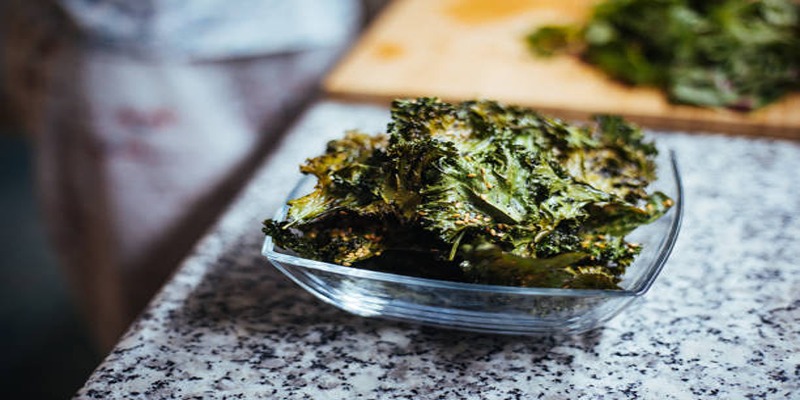Preserving a robust immune system is critical for one's holistic health. It defends the body against pathogens and diseases, thereby providing protection. Consider it to be our personal militia, perpetually engaged in combat to protect our welfare. The article places emphasis on possible improvements that could be made to overcome this barrier. Ensuring adequate sleep, nutrition, exercise, and stress management are all viable strategies that can significantly impact immune health. Each segment of the article consists of clear and concise instructions and details. Regardless of whether your goal is to enhance your overall health or strengthen your immune system, these guidelines will prove to be advantageous.

Understanding Your Immune System
Simultaneously, the immune system operates as an intricate internal network with the purpose of protecting the organism. Potentially beneficial for the detection and eradication of viral and bacterial invaders are these constituents. When operating at peak efficiency, this system possesses the capacity to detect and eradicate hazards, as well as prevent their reoccurrence.
The way you live has a substantial impact on the condition of your immune system. Sleep, diet, physical activity, and stress all exert substantial influences. A nutritious diet strengthens the immune system of the body, whereas an unhealthy diet may have the opposite effect. Consistent engagement in physical activity improves circulation, thereby facilitating the unrestricted movement of immune system cells and molecules, which in turn enable them to execute their functions more efficiently. Chronic tension on the immune system heightens vulnerability to disease. Sleep that promotes restoration is essential for immune response regulation. Gaining knowledge about these components and the consequences of one's lifestyle choices enables one to actively uphold a robust and healthy immune system.
Nutrition and Immune Health
Key Nutrients for Immune Enhancement
Adhering to a healthy diet is essential for promoting optimal immune system function. Specific nutrients play an essential function in immune system enhancement. Some instances include minerals such as zinc, selenium, and iron, in addition to vitamins including C, D, E, and the B-complex. Vitamin C, an abundant antioxidant found in citrus fruits and green verdant vegetables, is vital for the production of white blood cells, which are responsible for vital disease protection. Vitamin D, which is produced through solar exposure by the epidermis and is present in fatty salmon and eggs, bolsters the immune system's capability to defend against infections. Nuts and seeds are notable for their substantial vitamin E content, which functions as an immune-boosting antioxidant. Vitamin B6, which is found in poultry, salmon, and tuna, is one of the B vitamins that aids in the generation of fresh immune cells. Essential for the proper functioning and communication of immune cells, zinc can be obtained from legumes, meat, and fish, among other sources. Selenium, an abundant mineral found in Brazil nuts, strengthens the immune system and decreases inflammation, thereby benefiting the body. Iron is an essential element in immune cell production and can be acquired from legumes and red meat, among other foods.
Superfoods to Boost Immunity
By incorporating nutrients into your diet, you can effectively protect yourself from illness and strengthen your immune system. Various dairy products, including nutrient-dense spinach, yogurt containing probiotics, berries that are rich in antioxidants, garlic that has antimicrobial properties, and ginger that reduces inflammation, all contribute to the preservation of good health. It is simple to augment the effectiveness of one's immune system in disease prevention through the incorporation of these vital nutrients and micronutrients into one's daily dietary plan.

Physical Activity and Immunity
Consistent physical activity is vital for maintaining a healthy immune system. Participating in physical activity offers numerous benefits. Initially, it enhances circulation, thereby facilitating the immune cells' transport throughout the entire body. Optimal blood circulation supports the body's innate defense mechanisms against pathogens. Physical activity also decreases the concentration of stress hormones like cortisol, which, when elevated, can impair the functionality of the immune system. Physical activity regulates the release of stress hormones, thereby aiding in the maintenance of a robust immune response. Regularly participating in moderate-intensity physical activity, such as cycling, walking, or sprinting, rejuvenates immune cells, thereby enhancing their ability to defend against infections.
Exercise's Role in Strengthening Immunity
The immune-enhancing benefits can be obtained through moderate exercise alone, without the necessity for vigorous physical activity. Conversely, make an effort to sustain a moderate level of regular physical activity. Additionally, they should incorporate muscle-strengthening exercises at least twice per week into their routine. Furthermore, prioritize your physical health by pausing promptly whenever your body communicates the necessity for restoration. Prolonged physical exertion may result in a transient thwarting of the immune system.
By integrating cardiovascular, resistance training, and flexibility exercises into one's fitness regimen, the variety and effectiveness of routines can be significantly improved, leading to advantageous outcomes for both the immune system and overall health. A regular and consistent regimen of physical activity is of utmost importance in order to maintain optimal health.
Stress Management and Immune Function
Impact of Stress on Immunity
Directly affecting the immune system is stress. In response to duress, the body produces hormones including cortisol and adrenaline. With a compromised immune system, deficiency in these hormones could potentially increase vulnerability to illness. Extended periods of stress, particularly chronic stress, have the potential to induce permanent immune suppression, thereby impairing the body's capacity to combat pathogens effectively. Sustained or chronic stress has the potential to substantially compromise the functionality of the immune system, notwithstanding any transient adverse effects.
Strategies to Mitigate Stress
Consistently managing stress is critical for preserving a healthy immune system. Complex techniques are not necessarily sophisticated. Physical activity on a regular basis may reduce tension levels considerably. Engaging in physical activities like swimming, yoga, or walking may be beneficial for tension relief. Mindfulness-based activities, including deep breathing exercises and meditation, may also yield favorable outcomes. An enhancement of the immune system and a reduction in the production of stress hormones result from these effects. Adequate sleep is essential for the body and mind, as it promotes recovery from stress and strengthens the immune system. Additionally, scholarly investigations have demonstrated that tension can be alleviated through the practice of prioritizing personal relaxation, devoting time to cherished ones, and participating in pastimes. To optimize immune system function and manage stress efficiently, it is critical to identify activities that elicit a strong personal affinity and induce a calming sensation.
Supplementary Strategies for Immune System Boost
Herbal Supplements and Immune Health
The incorporation of botanicals into one's diet has the potential to strengthen the immune system. For example, echinacea has been utilized as a therapeutic agent and preventative measure against the common cold for centuries. Elderberry is an additional well-known plant with immune-boosting properties. Scientific research has demonstrated that garlic, when consumed as a dietary supplement, not only serves a practical function in culinary contexts but also boosts the immune system. It is imperative to seek guidance from a medical professional prior to beginning any new dietary supplements, given the potential for adverse reactions.
Ensuring adequate hydration is vital for the maintenance of both general health and immune function. The synthesis of lymph, which is accountable for transporting leukocytes and other immune system cells, occurs in the presence of water. The conversion of sunlight into vitamin D, which is critical for the proper operation of the immune system, is facilitated. Daily exposure to a few minutes of sunlight may substantially increase vitamin D levels, thereby fortifying the immune system.
Conclusion
In addition to adequate hydration and sunlight exposure, herbal supplements are a few supplementary methods that may potentially strengthen the immune system. In order to optimize health and strengthen the immune system's capacity to combat maladies, incorporate the following practices into one's daily regimen. It is critical to bear in mind that a robust immune system serves as the most efficacious barrier against any potential health complications.







